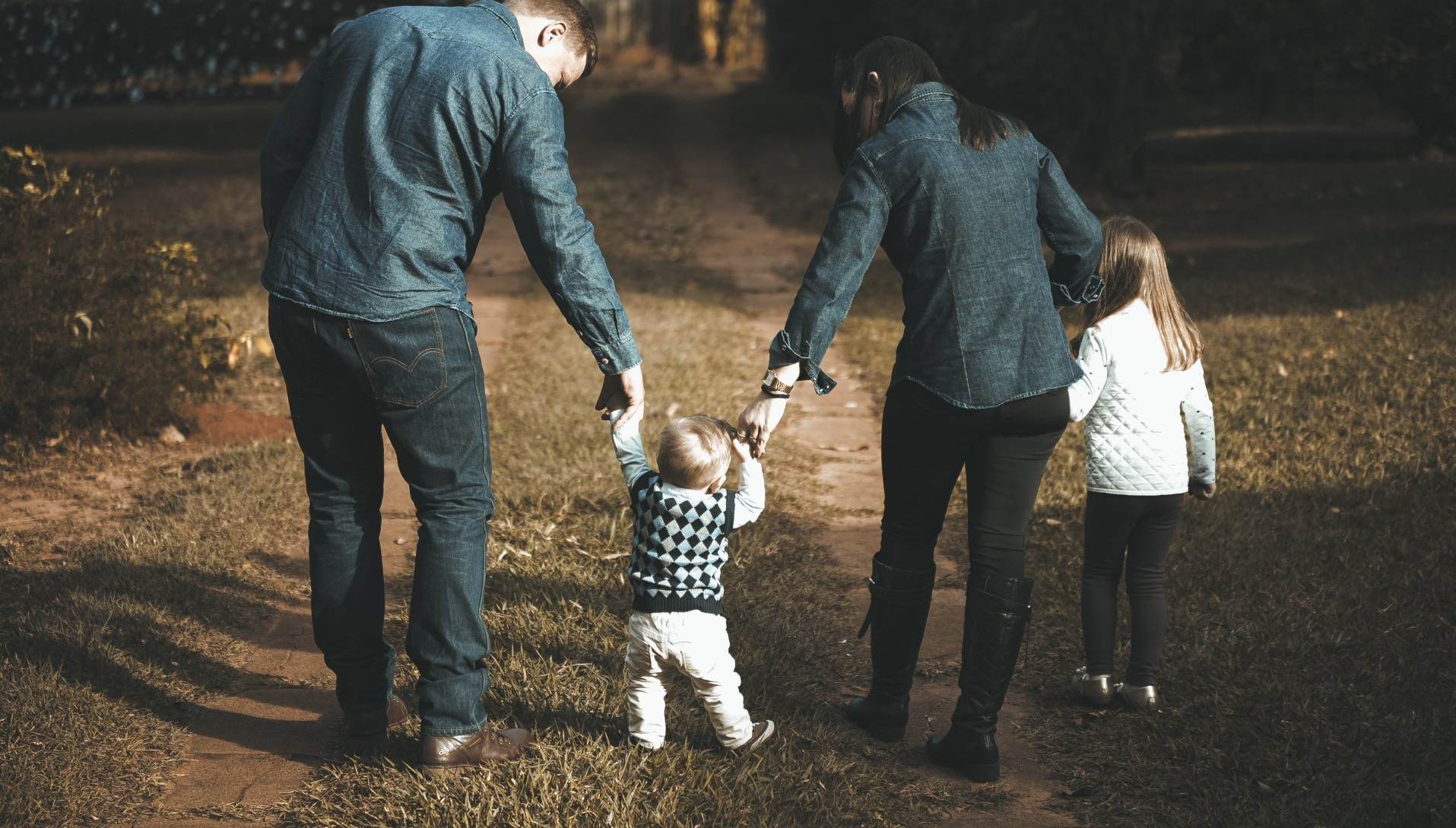What is a Special Guardianship Order (SGO)?
What is a Special Guardianship Order (SGO)?
In the world of family law, many legal mechanisms exist to secure the well-being of children who, for various reasons, cannot remain with their birth parents. One such mechanism is the Special Guardianship Order (SGO).
Introduced by the Adoption and Children Act 2002, an SGO is designed to provide long-term stability for a child by granting parental responsibility to someone other than their parents. This person, known as a special guardian, could be a relative, foster carer, or another individual with a close connection to the child.
Unlike adoption, however, SGOs do not sever the child’s legal ties with their birth parents.
An SGO gives a child a stable and secure environment while maintaining important family connections, making it a popular alternative to adoption for families who wish to preserve ties with the child's birth parents or extended family.
This is especially beneficial for children being raised by close family members, such as grandparents, aunts, or uncles, who want to care for the child without completely disrupting the child’s relationship with their birth parents.
Why Was Special Guardianship Introduced?
Before the introduction of SGOs, options for children who could not live with their birth parents were limited primarily to long-term fostering or adoption. Both of these options had drawbacks that didn’t suit all children or families.
Adoption, for example, completely terminates the birth parents' legal rights and responsibilities toward the child, which can be a harsh measure when a child still has a meaningful relationship with their parents or extended family. Long-term fostering, on the other hand, does not offer the same level of legal security as SGOs because foster carers do not have parental responsibility.
The introduction of Special Guardianship aimed to bridge the gap between these two extremes, offering a middle ground that provides both security and flexibility.
This legal arrangement is particularly useful when a child has been cared for by relatives or long-term foster carers and it is clear that returning to their birth parents is not in the child’s best interest, but adoption is also inappropriate or unnecessary.
What Are the Effects of a Special Guardianship Order?
When a Special Guardianship Order is made, it has several important legal effects:
- Long-Term Stability: A Special Guardianship Order is meant to secure the child’s long-term placement with the special guardian until the child reaches 18, providing the child with a stable home environment.
- Parental Responsibility: The special guardian is granted parental responsibility for the child. This means they have the legal authority to make significant decisions about the child’s upbringing, including decisions about education, medical care, and daily routines. Importantly, the special guardian can exercise this responsibility to the exclusion of others who may hold parental responsibility, including the birth parents.
- Day-to-Day Control: The special guardian has full authority over the child’s day-to-day care, much like a parent would. This allows the special guardian to make decisions about the child’s schooling, medical treatment, and other aspects of their daily life without needing to seek approval from the birth parents or the courts.
- Maintaining Birth Family Links: Unlike adoption, which severs all legal ties between the child and their birth family, Special Guardianship preserves the child’s connection to their birth parents. The birth parents retain a limited form of parental responsibility, though they cannot exercise it in ways that interfere with the special guardian’s decision-making. Contact arrangements are often made to allow the child to maintain relationships with their birth family, but these arrangements are subject to the child’s best interests and are not guaranteed.
- Ending Care Orders: If the child is under a Care Order (which places them under the care of the local authority), this order automatically ends when the Special Guardianship Order is granted. This is because the SGO gives the special guardian full legal responsibility for the child, making it unnecessary for the local authority to remain involved.
The Role of Parental Responsibility
In UK family law, parental responsibility refers to the legal rights, duties, powers, and responsibilities that a parent has in relation to their child.
When a Special Guardianship Order is made, the special guardian is granted parental responsibility for the child, allowing them to make decisions on the child’s behalf.
While the birth parents do retain some parental responsibility after an SGO is made, their role is significantly diminished. They cannot make any decisions that interfere with the special guardian’s care of the child, and the special guardian has the final say on all significant matters relating to the child’s welfare.
However, birth parents may still be involved in decisions concerning the child’s religion or name change, but only with the court's permission.
This balance ensures that the child’s needs are met in a stable and consistent way, while still allowing them to maintain relationships with their birth family when appropriate.
Who Can Apply to be a Special Guardian?
Applying for a Special Guardianship Order is not open to just anyone. Only certain individuals are eligible to apply, and these applicants must meet specific criteria set out by UK law. The following individuals may be eligible to apply for an SGO:
- Relatives of the Child: Grandparents, aunts, uncles, or siblings who have been caring for the child, or who have a close relationship with the child, may apply for an SGO. In most cases, the child must have lived with the applicant for at least one year prior to the application.
- Foster Carers: Foster carers who have been caring for a child continuously for at least one year may apply for an SGO. This is a common route for foster carers who wish to take on a more permanent role in the child’s life, without the need for adoption.
- People with Child Arrangements Orders or Residence Orders: If you already have a Child Arrangements Order (previously known as a Residence Order) or a Residence Order specifying that the child should live with you, you may apply for an SGO.
- Other Individuals: If the child has been living with you for at least three out of the last five years, or if you have the court’s permission, you may apply for an SGO. This category often includes family friends or distant relatives who have developed a close bond with the child and wish to take on a more permanent caregiving role.
If the child is currently in local authority care, the prospective special guardian must inform the local authority of their intention to apply for an SGO at least three months before submitting the application to the court.
The local authority will then assess whether the applicant is suitable to take on the role of a special guardian.
The Application Process and Assessment
Applying for a Special Guardianship Order is a legal process that involves careful consideration by the courts and local authorities. The process is designed to ensure that the special guardian is capable of meeting the child’s needs and providing a safe, stable, and nurturing environment.
- Notifying the Local Authority: Before applying for an SGO, prospective special guardians must notify their local authority in writing at least three months before they submit their application to the family court. This notice period allows the local authority to conduct an investigation and prepare a report for the court.
- Assessment by the Local Authority: The local authority will carry out an in-depth assessment of the applicant's suitability as a special guardian. This process includes a review of the applicant’s background, financial situation, and ability to care for the child. The authority will also assess the child’s needs and consider the potential impact of the SGO on the child’s relationship with their birth parents and wider family.
- Court Application: Once the local authority has completed its assessment, the prospective special guardian can apply to the family court for an SGO. The court will review the local authority’s report, along with any other evidence, before making its decision.
- The Child’s Best Interests: In all cases, the court’s decision will be guided by what is in the best interests of the child. This is the paramount consideration in any decision about a child’s future, and the court will carefully weigh the potential benefits and risks of making an SGO.
Support for Special Guardians
Becoming a special guardian is a significant responsibility, and those who take on this role are often entitled to various forms of support.
The type and level of support available can vary depending on the child’s circumstances and whether they were previously in local authority care. Some of the support options available to special guardians include:
- Financial Support: In some cases, special guardians may be eligible for financial assistance to help with the costs of raising the child. This is particularly common if the child was in local authority care prior to the SGO. However, it’s important to note that financial support is not automatic, and special guardians will need to apply for it.
- Counselling and Mediation: Special guardians may be offered counselling or mediation services to help them navigate the complexities of caring for a child with a troubled background. Mediation can also be useful in helping to establish or maintain contact arrangements with the child’s birth parents.
- Respite Care: In cases where the child has particularly demanding needs, special guardians may be offered respite care, allowing them to take short breaks while ensuring that the child remains in a safe environment.
- Support Groups: Many local authorities and charities offer support groups for special guardians, providing an opportunity to share experiences, advice, and emotional support with others in similar situations.
- Training and Therapeutic Support: In cases where the child has experienced trauma, abuse, or neglect, special guardians may be offered specialised training and therapeutic support to help them manage the child’s needs and ensure their well-being.
Even with an SGO in place, the child’s biological parents remain financially responsible for their child, and in many cases, they will be required to contribute to the child’s upbringing, either through child maintenance payments or other forms of support.
Alternatives to Special Guardianship
While Special Guardianship is a popular and effective option for many children, it is not the only legal arrangement available for those who cannot live with their birth parents. Some of the alternatives to SGOs include:
- Adoption: Adoption provides a permanent legal solution by transferring all parental responsibility from the birth parents to the adoptive parents. Once an Adoption Order is made, the birth parents lose all legal rights and responsibilities for the child, and the child is considered a legal member of their adoptive family.
Adoption is often seen as the most permanent solution for children who cannot return to their birth parents, but it is not always the best option for children who have strong ties to their birth family or older children who may struggle with the idea of adoption.
- Long-Term Fostering: Long-term fostering provides a stable home for children who cannot live with their birth parents, but it does not grant the foster carers parental responsibility.
This means that foster carers cannot make major decisions about the child’s life, such as where they will go to school or what medical treatment they will receive. Long-term fostering can provide a loving and stable environment for children, but it does not offer the same legal security as Special Guardianship.
- Child Arrangements Orders: A Child Arrangements Order (formerly known as a Residence Order) is another option for children who need a secure living arrangement.
This order sets out where a child will live and grants parental responsibility to the person the child lives with. However, this responsibility is shared with the birth parents, and the person with the Child Arrangements Order may have less decision-making authority than a special guardian.
The Importance of Special Guardianship in Child Welfare
Special Guardianship plays a crucial role in ensuring that children who cannot live with their birth parents have the opportunity to grow up in a stable, loving, and supportive environment.
By providing a legal framework that offers both security and flexibility, SGOs allow children to maintain important connections with their birth family while ensuring that their day-to-day needs are met by a trusted and responsible adult.
For many children, Special Guardianship offers the best of both worlds: the stability of a long-term placement with a caring and responsible guardian, and the ability to maintain relationships with their birth parents and extended family.
It is a legal arrangement that recognises the importance of family connections while prioritising the child’s need for security, stability, and love.
In conclusion, Special Guardianship is an important option for children who cannot remain with their birth parents. It provides them with the stability and security they need to thrive while preserving their connections to their birth family.
For relatives, foster carers, and other individuals who wish to take on a more permanent role in a child’s life, an SGO offers a flexible and supportive framework that ensures the child’s best interests are always at the forefront.




